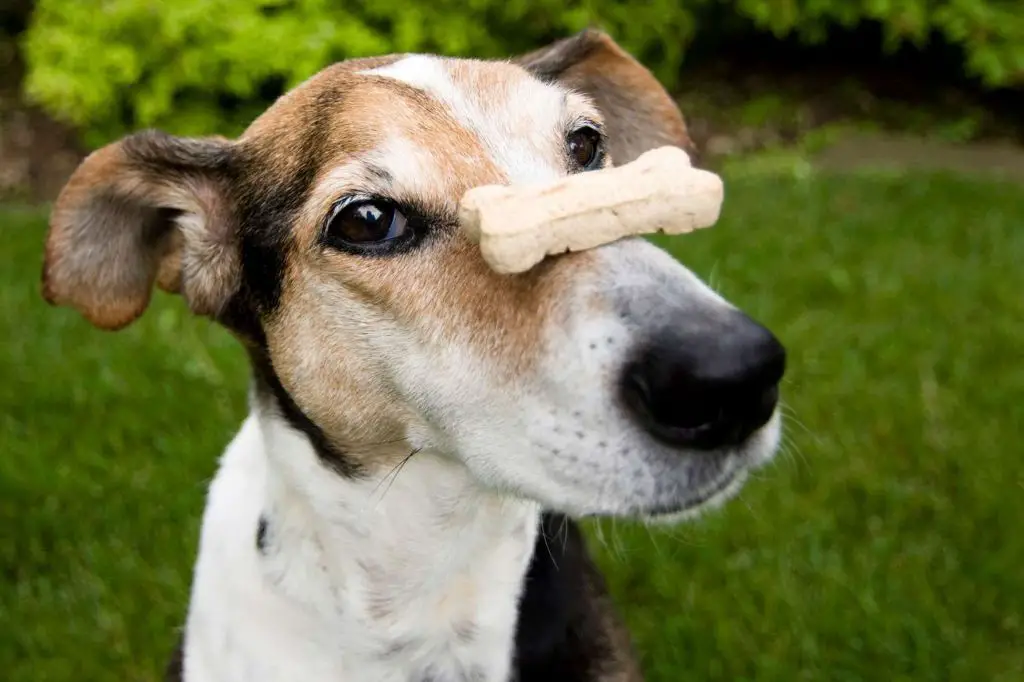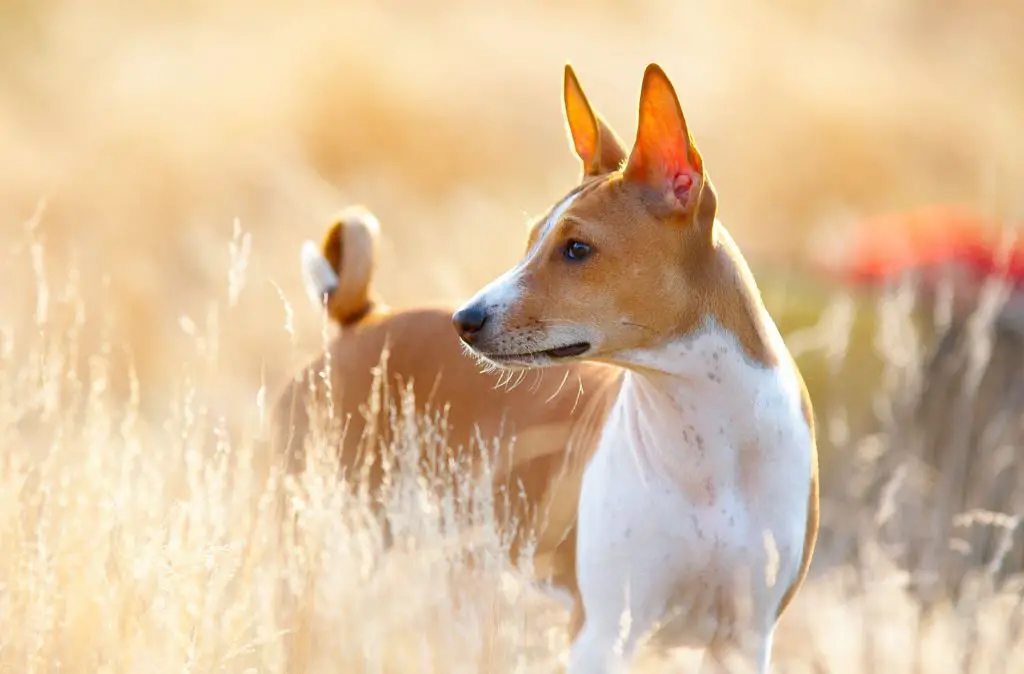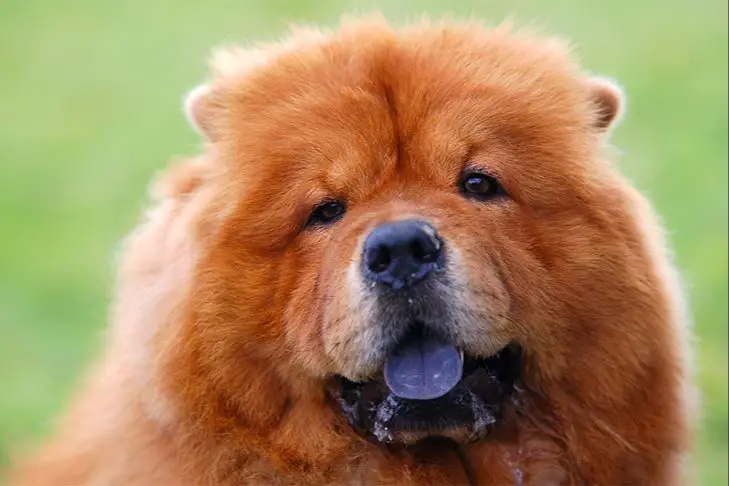Introduction
It’s common knowledge that many dogs are highly food motivated and will do just about anything for a tasty treat. However, some breeds are simply not as motivated by food rewards. This can make training more challenging, as food is often used as a primary reinforcer in obedience and tricks. Though less food-driven, these breeds are still intelligent and trainable using other motivators. This article will provide an overview of some of the least food motivated dog breeds and discuss the implications for training.
What Makes a Dog Food Motivated

Food motivation in dogs refers to a dog’s desire to obtain food rewards and their willingness to work for them. Food motivated dogs are highly responsive to treats and food during training. They will readily learn new behaviors in exchange for tasty food rewards. This article notes that food motivated dogs “get excited at mealtimes, training sessions, and the crinkling sound of a treat bag being opened.”
On the other hand, dogs with low food motivation are less driven by the promise of treats. They may be picky eaters or indifferent to food rewards. These dogs can be more difficult to train using treats and positive reinforcement techniques. Their drive comes more from praise, play, and interacting with their owner. According to this source, some dogs “simply don’t care too much about food and treats.”
Genetics and breed play a major role in determining a dog’s food motivation levels. Certain breeds like Labrador Retrievers have been selectively bred to be highly food motivated and responsive to food during training. Other breeds like Afghan Hounds tend to be more aloof and less obsessed with food rewards.
Least Food Motivated Dog Breeds
Some dog breeds are known for being less obsessed with food than others. These breeds tend to have lower food motivation and drive compared to breeds that are extremely food focused. There are a few reasons why certain breeds are not highly food motivated.
Many of the least food motivated breeds are hunting and sight hound dogs. Sighthounds like Afghan Hounds, Salukis, and Borzois were bred to hunt using their speed, sights, and instincts. They are independent thinkers that are not as eager to please humans compared to other breeds. Sighthounds can take or leave food rewards since they are not as people focused. According to redditors on r/dogs, sighthound breeds are generally less food motivated due to their aloof and independent nature (source).
Other low food drive breeds like Shiba Inus and Chow Chows are known for being stubborn and aloof. They are not as treat motivated because they have a mind of their own and are not as eager to please. Breeds that were meant to work closely with humans like Labrador Retrievers are much more food focused since they aim to please their owners.
A dog’s food motivation can also be shaped by early life experiences. But certain breeds have a genetic predisposition to be less obsessed with food than others. Their origins and purposes have made them less dependent on human praise and treats.
#10 – Afghan Hound
The Afghan Hound is known for its aristocratic appearance and aloof personality. Originally bred in Afghanistan as hunting dogs, Afghan hounds are independent thinkers that can be challenging to train. According to Dogtime, “The independent thinking of the Afghan makes them a challenge to train. This hound is generally not motivated by food and does not possess as strong a desire to please his owner as other breeds do.”
Afghan hounds tend to be picky eaters and are not highly food motivated. As Pro Dog Raw notes, “Afghan Hounds can be finicky eaters. Due to their independent nature, they are not highly motivated by food or treats.” Their background as hunting dogs in rugged mountainous regions of Afghanistan resulted in a breed that is not extremely food-driven.
For these reasons, the Afghan hound is one of the least food motivated dog breeds. Their aloof and independent personality makes them more difficult to train with food rewards. Owners need to be patient and find other ways to motivate this beautiful yet willful breed.
#9 – Basenji
The Basenji is an ancient dog breed from Africa known for its cat-like behavior, athleticism, and curled tail. While highly intelligent, Basenjis are one of the least food motivated breeds.
Basenjis were originally bred by tribes in central Africa to hunt game by sight and scent. Since food was often scarce in their native environment, Basenjis evolved to have minimal food drive compared to most dogs. Their prey drive is often much stronger than their desire for treats or kibble.
Many Basenji owners report their dogs acting indifferent to food rewards during training. Basenjis will often ignore food placed right in front of them in favor of playing or exploring their surroundings. Their independent nature makes motivate them with food challenging.
On Reddit and Basenji forums, owners frequently complain about their dog skipping meals or acting finicky with food. Basenjis have sensitive stomachs and can be picky eaters. However, their lackluster food motivation likely stems from their heritage as hunters in harsh African environments.
While Basenjis may not go crazy for meals or treats, they can still be trained using techniques like lure coursing which tap into their prey drive. But overall, Basenjis are one of the least food-obsessed breeds out there.

#8 – Chow Chow
The Chow Chow is an ancient breed of dog originating from China. They are known for being independent, stubborn, and aloof. Chow Chows are often not very treat or food motivated compared to other breeds.
According to the breed standard, Chow Chows should be “dignified, alert, aloof, and discerning”. Their stubbornness comes from their hunting background, as they needed to think independently when hunting. Chow Chows were used for hunting, herding, pulling sleds, and guarding in ancient China.
Many Chow Chow owners report their dogs showing little interest in treats or food rewards. According to one Chow Chow owner on a forum, “What motivates a Chow – I know it isn’t food, but…” (source). Chow Chows can be stubborn and aloof, making training with food challenging.
Some tips for dealing with a Chow Chow’s lack of food motivation include keeping to a set feeding schedule instead of free-feeding, using their regular dog food for training treats, and using praise and affection as rewards rather than relying on food treats.
#7 – Shiba Inu
The Shiba Inu is an ancient Japanese breed known for their spirited personality. They are very intelligent but also independent thinkers who can be aloof and stubborn. Shiba Inus were originally bred to flush small game and were not trained using treats or food rewards.
As a primitive breed that is more closely related to wolves than modern domesticated dogs, Shiba Inus tend to be less motivated by food than other breeds. They are not obsessed with eating and do not beg or scavenge for food. Shiba Inus have a strong prey drive and are more interested in chasing scents and small animals than eating treats during training sessions.
According to dog owner forums like Reddit, many Shiba Inu owners struggle with their dog’s lack of food motivation. Shiba Inus require creativity and patience when it comes to training, as they are more motivated by mental stimulation and independence than food rewards (source). Their aloof nature and high prey drive make them one of the least food motivated breeds.
#6 – Chinese Shar-Pei
The Chinese Shar-Pei is an ancient dog breed originating from China. They were originally bred as guard dogs but later became companions. Shar-Peis are known for their distinctive wrinkled skin and blue-black tongues.
These independent and strong-willed dogs are often not as food motivated as other breeds. According to https://animals.net/chinese-shar-pei/, many Shar-Peis are less interested in treats and finding other ways to motivate them is important. Praise, petting, and play can be more effective rewards. Their independence can make them more stubborn when it comes to training. Patience and consistency are key.
The Shar-Pei requires dedicated socialization and firm, positive training methods. Their strong will means they need an experienced owner who can establish themselves as the calm, confident leader of the pack. With proper training and care, the Shar-Pei makes a loyal companion.
#5 – Akita
The Akita originated in Japan as a large breed hunting dog known for tracking bears, boars and deer. They were later used as guard dogs because of their loyalty and protective instincts. Akitas are known for being stubborn, strong-willed and less biddable than other breeds. They have a reputation for being challenging to train due to their independent nature [1].
One of the main reasons Akitas rank low in food motivation is their low food drive. Many Akitas are picky eaters or prone to skipping meals, especially as puppies. They have a lower food drive compared to breeds developed for hunting, herding or demanding tasks. Akitas are content lounging around the house and don’t have an inherent need to constantly nibble or chew. Owners often struggle with motivating Akitas through food rewards alone [2]. Instead, Akitas respond better to rewards like praise, play and freedom – not treats.

Conclusion
In this article, we explored some of the least food motivated dog breeds. These independent thinkers are often more motivated by praise, play, and bonding than food rewards. The top 5 least food motivated breeds we covered were:
5. Akita
4. Chinese Shar-Pei
3. Shiba Inu
2. Chow Chow

1. Basenji
When training these breeds, keep sessions short and positive. Make use of play, petting, and verbal praise over food rewards. Build a strong bond through activities like walking, hiking, or playing fetch. And be patient – independent dogs can take a little longer to train.
Understanding your dog’s key motivations is crucial to training success. While many dogs are highly food motivated, others find more intrinsic rewards in bonding and playtime. Get to know your individual dog’s personality to determine the best training methods and rewards. With the right approach, you can have an obedient and well-trained dog – even the less food motivated breeds!
